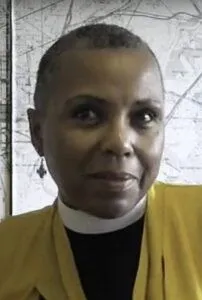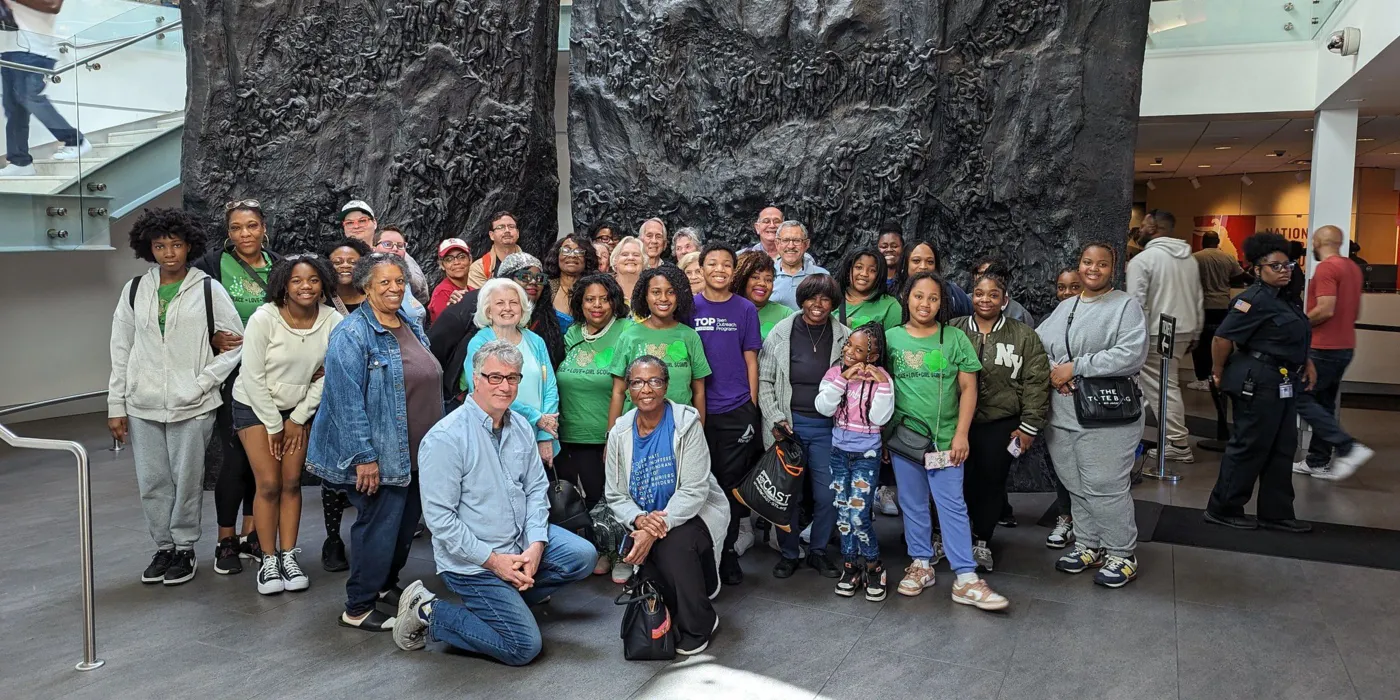
by Kurt Greenbaum
Co-facilitator of the Diocesan Dismantling Racism Commission
The author of “Black and Episcopalian” visited with members of the Commission on Dismantling Racism and others from the Diocese in October.
Is “beloved community” a smokescreen that gets in the way of the hard work of anti-racism? Are we willing to do the work? Will there be an “Obama backlash” when it’s time to elect a new presiding bishop for the Episcopal Church? These are some of the questions the Rev. Dr. Gayle Fisher-Stewart addressed in her talk to the Commission on Dismantling Racism on Oct. 8.
A group of 22 gathered to hear the author of “Black and Episcopalian” share some insights and answer some questions about her book, which offers an unflinching look at history of The Episcopal Church on racism and takes a provocative approach to truth-telling about the exclusion at the core of our history as Episcopalians.
Watch a video of the entire conversation here. Read a few highlights from her presentation, printed below the video box.
On the music of the church
In 1893, the composer Anthony Dvorjac prophesied that there would be this great and noble school of American classical music based on the Negro melodies, based on the sorrow songs and the spirituals, and he was traveling around the country, and he heard this music, and he said, America doesn’t really have classical music. You have European music that you call classical, but you don’t really have American classical music. And so the Black music that he heard from those who had been enslaved and in the Black church, these can become classical music for America. But classical music music stayed white, and it stayed European. And white composers such as Aaron Copeland and Virgil Thompson and Leonard Bernstein maintained there was no music of consequence before 1910. So, just off our music. Just off our music.
On being “betwixt and between”
After the Civil War, we left this church in droves because it was the church of the enslaver. But then we came back because it was also an elitist church, and we were trying to go there, too. Sometimes we have to ask ourselves “why are we Episcopalian as opposed to AME?”
On the next presiding bishop
There is a question on the table—underneath the table—that when Bishop Curry is no longer presiding bishop, will we see an “Obama backlash” in the church? So, now it’s out there in some places. Will we see an Obama backlash? Are there people who want their church back? A proper presiding bishop, who does not channel his Baptist grandmother, who knows how to stay in the pulpit while he preaches? So, what happens? What are we looking for?
On “beloved community”
Right now, it’s a smokescreen. Let’s just sit in that. Let’s sit in it. It’s a smokescreen that keeps us from doing what we are being called to do. Let’s go back to this whole thing called love. What kind of love are you talking about? Define love. It’s got to be tough love. It’s got to be in-your-face love. This has got to be up-on-the-cross kind of love. And we don’t want to do that.
